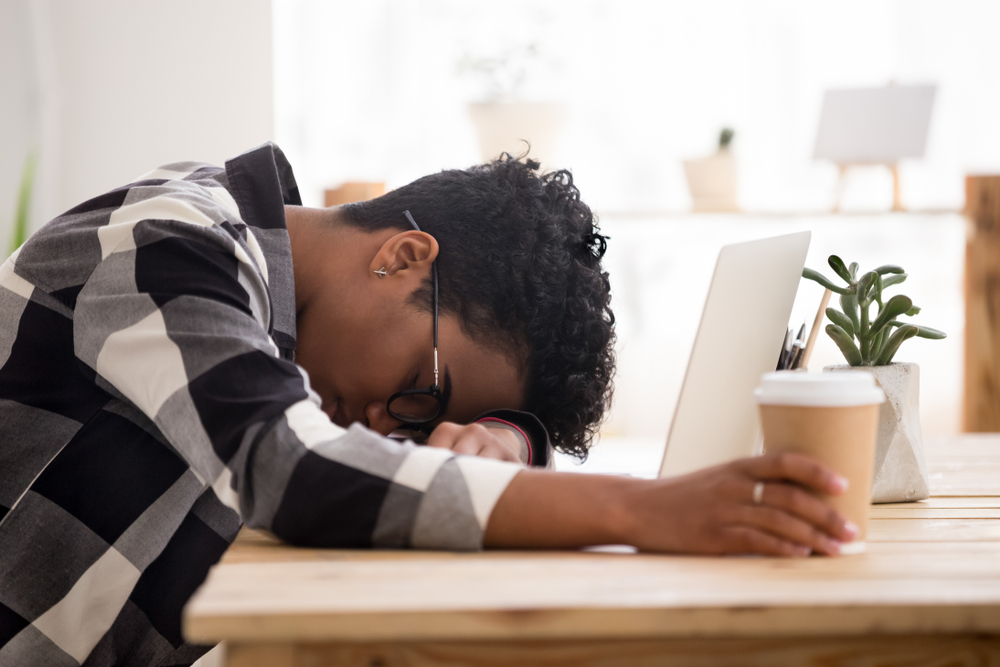Feeling tired all the time, even after getting enough sleep? You might be experiencing something called hypersomnia. It’s essential to recognize the warning signs of this condition to seek help. Fortunately, you can learn everything you need to know about hypersomnia with a search online right now, which could help you spot the warning signs.
Hypersomnia vs. Hypersomnolence: Whats the Difference?
Hypersomnia and hypersomnolence are two terms that are often used interchangeably, but there’s a slight difference between them. Hypersomnia refers to feeling excessively sleepy during the day, while hypersomnolence includes both excessive daytime sleepiness and unusually long periods of nighttime sleep. Both conditions may lead to a strong urge to take multiple naps throughout the day, but these naps don’t bring much relief from the tiredness. It’s important to understand these differences and how they may affect your health. So, take the time to do your research and protect your well-being!
Warning Signs of Hypersomnia
Recognizing the warning signs of hypersomnia is crucial for seeking help. Some common symptoms include feeling extremely tired during the day and struggling to stay awake even after a full night’s sleep. Sometimes, individuals experience sleep attacks, which cause them to fall asleep without warning during the day.
Other symptoms to watch for include anxiety, depression, and trouble with memory. There are other signs too, so it can be helpful to continue your research to find out which symptoms may be affecting you.
What Causes Hypersomnia?
Hypersomnia can have various causes, and sometimes, it may be challenging to pinpoint the exact reason. Some known causes include the presence of other sleep disorders like narcolepsy or obstructive sleep apnea, drug or alcohol misuse, and medical conditions such as multiple sclerosis, depression, or epilepsy. Physical problems like head trauma or certain medications can also contribute to hypersomnia.
In some cases, the cause may not be clear, leading to a diagnosis of idiopathic hypersomnia, a sleep disorder characterized by chronic excessive daytime sleepiness. Understanding the potential causes can help you and your doctor find the right approach to manage this condition effectively.
Related Conditions
Hypersomnia is related to other sleep disturbances and disorders that can affect your quality of sleep and daily life. One similar condition is sleep-wake disorders, which can lead to problems with sleep timing and cause excessive daytime sleepiness, memory issues, and even symptoms of depression.
Another related condition is obstructive sleep apnea, where breathing stops briefly during sleep, leading to non-refreshing nights and daytime fatigue. Narcolepsy is also similar to hypersomnia, causing excessive daytime sleepiness, visual hallucinations, and sleep paralysis, along with nighttime waking and cataplexy in some cases. Understanding these related conditions can help you and your doctor identify the right treatment and improve your overall well-being.
Diagnosing Hypersomnia
Diagnosing hypersomnia can be tricky because its symptoms can be similar to other sleep disorders. To determine if you have hypersomnia, your doctor will ask you questions about your daytime fatigue and sleep habits, ruling out other possible health issues. They may use the Epworth Sleepiness Scale to assess your symptoms and see how long you’ve been experiencing them.
Additionally, sleep studies, like the overnight polysomnogram (PSG) and the multiple sleep latency test (MSLT), play a crucial role in diagnosing hypersomnia. These tests measure factors like sleep latency, the time it takes to go from being awake to asleep. If you’ve been struggling with excessive daytime sleepiness for at least 90 days, it may indicate idiopathic hypersomnia. If you suspect hypersomnia, consulting a sleep specialist and taking these tests can help identify the condition and guide you toward appropriate treatment options.
Treating Hypersomnia: What Are My Options?
When it comes to treating hypersomnia, the first step is to find out what’s causing it, and this will help determine the best approach. Treatment options can vary widely and may involve counseling about sleep habits and hygiene if there’s a lack of sufficient sleep. For those with obstructive sleep apnea (OSA), continuous positive airway pressure (CPAP) or oral appliances might be recommended.
Sometimes, adjusting the type or dosage of certain medications can be part of the treatment plan. It’s crucial to do your research, compare different options, and consider what might work best for you. However, consulting a doctor is essential to get a personalized treatment plan.
Learn More About Hypersomnia Today
Don’t wait to learn more about hypersomnia. Start searching today to better understand its symptoms, causes, and available treatments. By empowering yourself with knowledge, you can take charge of your health and well-being. Knowledge is the first step towards finding relief and getting the help you need.



